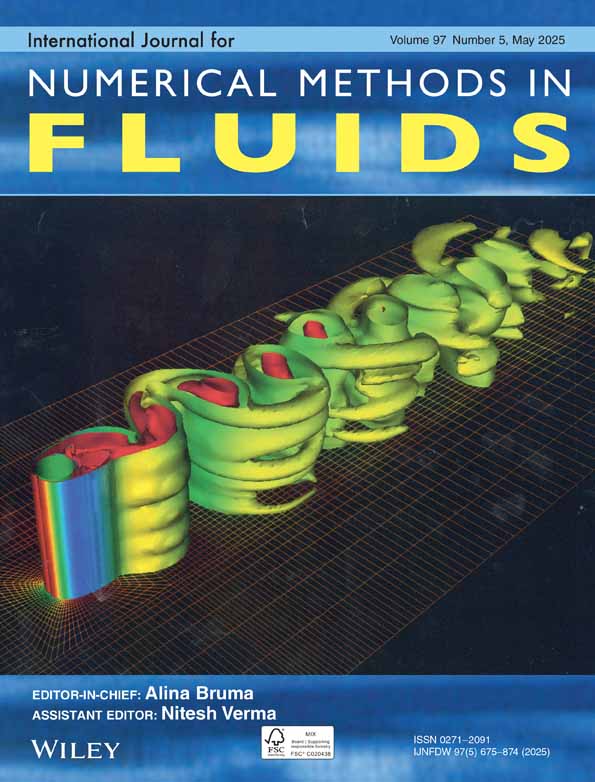A Low-Dissipation Hybrid Fourth-Order Center-Upwind WENO Scheme With Virtual Sub-Stencil for Compressible Flows
ABSTRACT
In this paper, a novel fourth-order center-upwind WENO scheme is proposed for the fifth-order WENO (Weighted Essentially Non-Oscillatory) scheme with innovative improvements. This scheme achieves an effective reduction in numerical dissipation and a significant improvement in scheme adaptability by introducing a virtual sub-stencil dynamically controlled by a switching function. The core of the study lies in the redesign of the sub-stencil of the fifth-order WENO, which is decomposed into two two-point sub-stencils, and the automatic selection and switching between the sub-stencils is achieved by the switching function. In addition, the new scheme achieves adaptive optimization under different flow conditions by dynamically adjusting the linear weights, allowing flexible switching between the fourth-order central and fifth-order WENO schemes. Through the spectral characterization of the ADR method and the empirical validation of a series of benchmark numerical test cases, the new scheme demonstrates lower power dissipation and higher resolution, verifying its effectiveness and application potential in high-precision numerical simulations.
Conflicts of Interest
The authors declare no conflicts of interest.
Open Research
Data Availability Statement
The data that support the findings of this study are available on request from the corresponding author. The data are not publicly available due to privacy or ethical restrictions.




